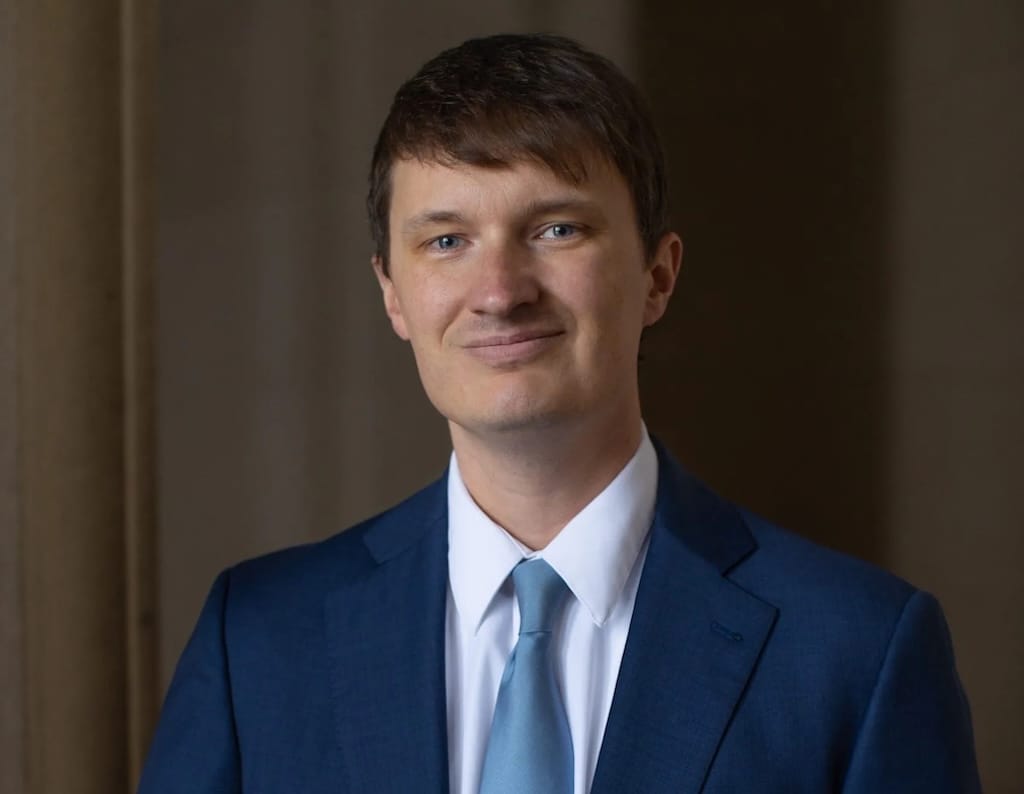Supreme Court Could Use USF Case to Cut Agency Power: Consumers' Research Lawyer
The litigious conservative nonprofit challenging the Universal Service Fund says its case could make it harder for Congress to delegate duties.
Jake Neenan

WASHINGTON, Oct. 9, 2024 – The legal fight over an $8 billion broadband subsidy could serve as a vehicle for the Supreme Court to make it harder for Congress to delegate responsibilities to federal agencies, one of the lawyers in the case said Wednesday.
Trent McCotter, counsel for Consumers’ Research, the litigious conservative nonprofit challenging the fund, pointed to a 2019 dissent from Supreme Court Justice Neil Gorsuch that argued for “reinvigorat[ing]” the nondelegation doctrine, which holds that Congress cannot hand legislative duties over to agencies. Chief Justice John Roberts and Justice Clarence Thomas joined Gorsuch.
“In that case, obviously, they failed. Now, in the meantime, there have been some more additions to the court,” McCotter said at a Federalist Society webinar. “I think everyone’s been kind of assuming at some point the Supreme Court will take up a nondelegation case.”
Two conservative justices – Brett Kavanaugh and Amy Coney Barrett – have been confirmed since that case was argued in 2018, cementing a 6-3 conservative majority that has issued several rulings reducing federal agency authority.
Consumers’ Research has raised a nondelegation argument in several challenges to the Federal Communications Commission’s Universal Service Fund, arguing in part that Congress didn’t set out enough of an “intelligible principle” for the agency to follow in administering the program. The USF is funded by fees levied on telecom providers, and the group argued Congress effectively gave the agency taxing power with too few guardrails.
Two federal circuit courts – the Sixth and Eleventh – sided with the FCC, ruling that the intelligible principle standard permits even broad guidance, and the Congress laid out in the 1996 law standing up the fund passed legal muster – Gorsuch argued in the 2019 dissent for ditching the standard and using a tougher test to prevent agencies from exercising what he saw as legislative power.
The FCC originally won in the Fifth Circuit as well, but the court reheared the case with a full panel of judges last year and issued a decision that found the fund unconstitutional in July. The agency appealed to the Supreme Court on Sept. 30, and the decision is on hold until the high court weighs in.
The Fifth Circuit didn’t rule on whether or not the law violated the nondelegation doctrine or on whether the FCC improperly delegated its own authority to USAC, the nonprofit it set up to manage the fund, but instead found the combination of those factors took taxing power away from the legislature. The telecom industry and advocates alike were uneasy about the ruling, saying it would be disruptive for the rural networks and low-income households and schools and depend on USF.
McCotter said he wasn’t sure how far the Supreme Court would go if it took up the case and sided with Consumers’ Research, but said he thinks justices will chip away at the nondelegation doctrine somehow.
The FCC is also confident in its case: It asked justices to rule on both the challenges Consumers’ Research brought in addition to the Fifth Circuit’s combination ruling, something McCotter said made its job harder than if it only appealed the ruling.
“I don’t exactly know what they’re going to do, but I think that sooner rather than later – emphasis on sooner – they’re going to have to take [a nondelegation case],” he said. “I think they want to take one.”









Member discussion